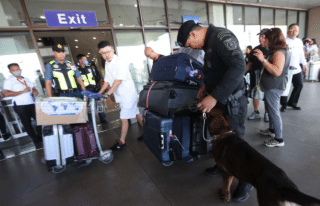Ruby Tuason’s decision to return to the Philippines, to testify in the plunder case against her old friends—among them Senator Jose “Jinggoy” Estrada, Sen. Juan Ponce Enrile and Enrile’s long-time chief of staff, Gigi Reyes—is a real break. Tuason herself stands accused of profiting from the so-called pork barrel scam allegedly masterminded by controversial businesswoman Janet Lim-Napoles. Her testimony, the gist of which we can glean from summaries of her affidavit, includes details about how Napoles’ scam evolved over time (or at least from 2004 to 2008) and how she (Tuason) personally and regularly delivered the pork barrel cash to Reyes (until 2007) and Estrada (until 2008).
To the voluminous documentation and the whistleblowers’ testimony that support the plunder case, Tuason’s surprise emergence as state’s witness adds the crucial element of a participant’s confession. How should we appreciate this development? Three initial reflections.
First, allowing Tuason to turn state’s witness is not a reward for wrongdoing. Rather, it is the necessary cost of successfully prosecuting those with a greater responsibility for the wrong done. The suggestion that, by turning an accused into a friendly witness, the Aquino administration is encouraging conspiracies like the pork barrel scam by rewarding a confessed coconspirator like Tuason, is based on simple ignorance. Our legal tradition has long recognized the need for state’s witnesses, precisely because conspiracies or the joint commission of a crime are difficult to prove. To suggest that Justice Secretary Leila de Lima should not have entered into a deal with someone like Tuason is to say that the government should pursue a high-impact case like the plunder of the pork barrel without using all the legal means at its disposal.
Besides, the law provides specific conditions before a participant in a crime can be considered a witness for the state, including the all-important one that someone like Tuason must not be among the most guilty of committing the alleged crime.
Second, De Lima’s exuberant description of Tuason’s affidavit as “slam dunk evidence” seems appropriate as far as Estrada’s own liability in the alleged diversion of Priority Development Assistance Fund allocations is concerned. She has sworn that she gave the money directly to the senator. The evidence against Enrile is damning, too, but De Lima must admit that it is not of the same gravity as that against Estrada. Tuason merely says that she gave the money to Reyes, Enrile’s trusted confidant, in various venues. Sometimes, after the turnover was effected, Enrile would show up, if only to have coffee with the two ladies or to fetch Reyes. What this means is that the government will have to work harder to include more circumstantial evidence against the former Senate president.
We remember, of course, that Enrile said nothing happens in his bailiwick without his imprimatur (this was apropos of the 2008 controversy over alleged car smuggling in the Cagayan Export Processing Zone). Couldn’t the same thing be said about the affairs in his Senate office?
Third, conscience is what we make of it. Many of the most prominent Filipinos accused of criminal wrongdoing have always protested that their conscience was clear; indeed, that has been the melancholy refrain we’ve heard through the years, even from politicians caught with their hands deep inside the pork barrel. But consider what Tuason said, about why she decided to stand before the world and publicly confess that she had been party to large-scale corruption: She was doing it for her grandchildren. “I do not want them to hate me when they grow up, because they would be told by friends that their grandmother did something very wrong.” She also said: “I do not want to be an embarrassment to my grandchildren and children. I am so ashamed of myself that I have to do something to correct what I have done.”
It may be hard for those who know Tuason personally, or of her reputation as a socialite, to see her as a person of conviction or conscience. But don’t her words strike the authentic, human note? She doesn’t see herself a hero, and should never be mistaken for one. But her remorse has led to resolve: to correct what she has done. That seems to us to be conscience finally at work.


